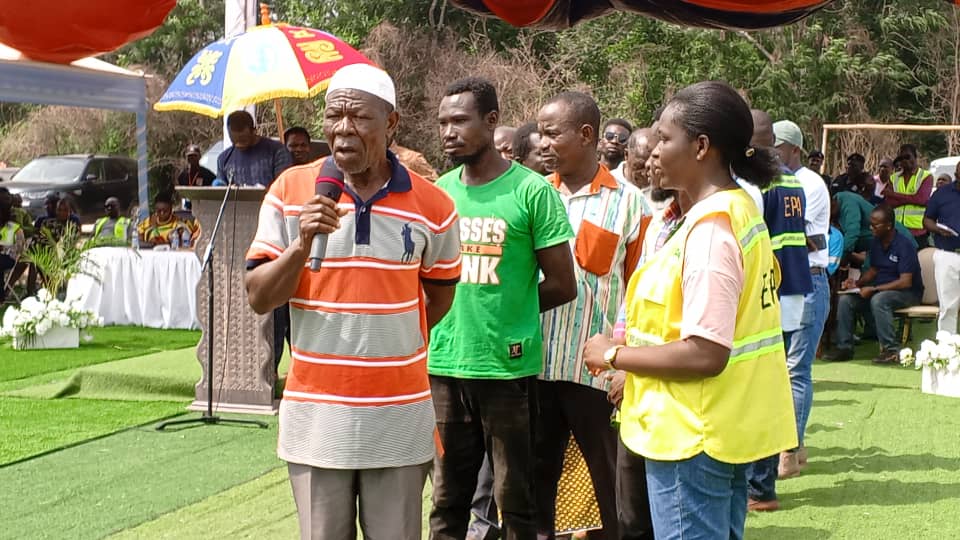By Isaac Arkoh
Ewoyaa (C/R), Feb. 14, GNA – The Environmental Protection Agency (EPA) and Atlantic Lithium Mining Company, have pledged to do thorough impact assessment in operating communities to avert the consequences of that mining in its catchment areas.
This is guided by the experiences of many mineral rich communities that have become pale shadows of themselves after decades of mineral explorations without much to be proud of.
Mr Ransford Sekyi, the Deputy Executive Director in-charge of Operations at EPA and Mr Len Kolff, Head of Business Development and Chief Geologist of Atlantic Lithium, gave the assurances at a public hearing on the ‘Scoping Report and Draft Terms of Reference’ for the Ewoyaa Lithium mining and processing project.
The colourful ceremony, brought together all stakeholders including traditional authorities, elders, and members of the affected communities with officials of the EPA and Lithium soliciting the input of people from the two operating districts, Mfantseman and Abura-Asebu-Kwamankese.
The communities are, Ewoyaa, Mankessim, Abonko, Anokyi, Afrangua, Krampakrom, Krofu, Ansadze, Amanse-Nkusukum, Saltpond-Bakado, Saltond-Eguabado and Saltpond-Nankesedo.
Scoping is a critical, early step in the preparation of an environmental impact assessment that identifies or assesses potential environmental impacts and opportunities associated with a proposed project to help establish the terms of reference of the document.
To them, the responsible management of natural resources and ecosystems such as soils, plants, animals, water and air, and the services they provide, was central to the efforts of any society seeking to become more sustainable.
Backed by the moral obligation of organisations to be responsible, the entities have resolved to protect, improve, and restore the environmental integrity of the area before, during and after the expected 15 years of Lithium operations at the $250-million project site located at Ewoyaa.

Mr Sekyi said after six years of exploratory activities, all was set for the mining of lithium to start in commercial quantities, if a mining lease was granted to Barari DV Ghana Ltd, a subsidiary of Australia-based Atlantic Lithium.
However, that would only materialise after a thorough environmental impact assessment report had been approved by EPA for the first-ever mining of lithium in the country.
He asked the residents to grab the opportunities that came with Lithium mining, considering the bad implications of possible land litigation and community resettlements which were imminent.
“You must turn the possible negatives into positives by collectively observing what goes on around you. I want all stakeholders to shine their eyes as the company gears to begin operations.
“The EPA alone cannot do the strict monitoring but with the efforts of all. Environmental management and sustainability according to the EPA mandate, oblige stakeholders to co-manage, and we are determined not to allow the gold devastation of some communities to be replicated anymore,” he assured.
Mr Kolff described Ghana’s first lithium discovery as a fantastic achievement and made a commitment to act responsibly with all stakeholders to deliver long-term benefits within the communities it would operate in.
He was grateful to the chiefs and people for their immeasurable contributions since 2017 when prospecting started, adding that working with the communities and fostering a healthy licence to operate based on honesty, integrity, and trust had been integral in their work output.
Therefore, he noted such deep-seated work ethos would be sustained as the company moved to the next chapter of its operations across the communities.
He said the company would work hard to discover more lithium deposits for mutual gain.
About 40 residents of the area and some selected chiefs took turns to ask pertinent questions on land acquisitions and compensations, resettlement plan, alternative means of livelihoods, among others.
GNA